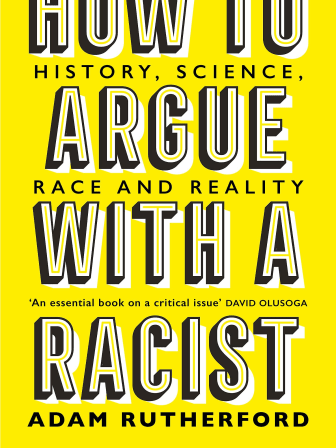Race and Racial Identity
Source
About This Web Link
Although race has no genetic or scientific basis, the concept of race is important and consequential. Societies use race to establish and justify systems of power, privilege, disenfranchisement, and oppression.
Explore related resources
Ten Things Everyone Should Know About Race
Our eyes tell us that people look different. But what do those differences mean? Are they biological? Has race always been with us? How does race affect people today?
The Myth of Race, Debunked in 3 Minutes
You may know what race you are, but how would you prove it if someone disagreed with you? The fact is, race is a social and political construct that has evolved in fascinating and often confusing ways over the centuries.
Race Is a Social Construct, Scientists Argue
Racial categories are weak proxies for genetic diversity and need to be phased out.

How to Argue with a Racist: History, Science, Race and Reality
Racist pseudoscience may be on the rise, but science is no ally to racists. Instead, science and history can be powerful allies against bigotry, granting us the clearest view of how people actually are, rather than how we judge them to be.
Interview with Ruth King: Healing Racism from the Inside Out
Racism is a heart disease, and it’s curable.

Being Antiracist
To create an equal society, we must commit to making unbiased choices and being antiracist in all aspects of our lives.

Anti-Racist HR Guidebook
This guide provides concrete examples of practices and procedures that can help you build a new foundation that will meet your workforce where it’s at and create a more hospitable culture that centers and supports people of color.
‘Check your privilege’ used to annoy me. Now I get it.
No one likes to believe they’ve been given a leg up in life. But in truth, whether it’s by being white, or straight, or even just able to read, most of us have privilege.
The Danger of Silence
"We spend so much time listening to the things people are saying that we rarely pay attention to the things they don't," says slam poet and teacher Clint Smith. A short, powerful piece from the heart, about finding the courage to speak up against ignorance and injustice.